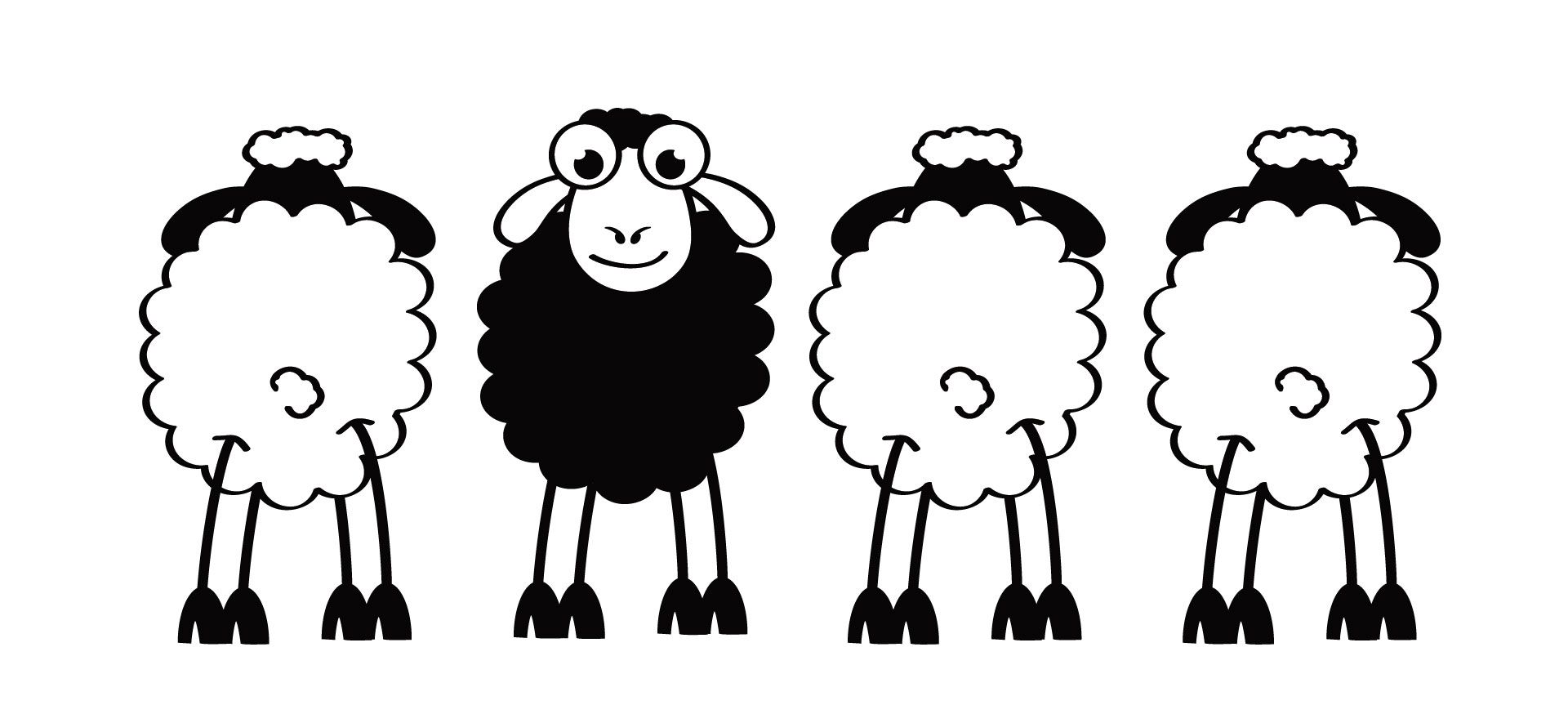Beyond Conformity: Exploring the Significance of the role of the Black Sheep

In society, the term “black sheep” often carries a negative connotation, referring to an individual who stands out or feels disconnected from the rest of their kin and acts out accordingly. The black sheep has been a symbol of rebelliousness and bad luck for centuries. The black sheep is thought to be an outcast, and it’s often used as a metaphor for someone who doesn’t fit in with the rest of society. When referring to the black sheep the speaker is often intending to demonstrate that this person has brought disfavor or shame upon themselves or their family.
However, what most people don’t know is that there are distinctive kinds of black sheep — those who stand out in a dysfunctional or unhealthy family unit, those who don’t conform in an otherwise healthy family dynamic, and those who are just different from the family unit at large. This is an important concept, especially in trauma work, because when someone feels like the outcast and is only familiar with the classic “black sheep” they can identify as such and mistakenly believe they’re engaging in unhealthy and even shameful habits! When dysfunctional is all you know, no matter how much better healthy is, it can feel like the wrong thing to do. The unfamiliar creates anxiety. Identifying or being identified in this way can really cause problems with identity and healing.
The “Unhealthy” One in a Healthy Family
The first type of black sheep exists within a supportive, functional family. Very often I see this form in the space of trauma, addiction, brain damage, deep psychological issues like mood disorders or schizophrenia, or some other form of psychological or emotional woundedness. Perhaps there’s an addiction that causes problematic behaviors like stealing, lying, or not showing up in some other way. Maybe trauma shows up and this person acts out, triggers into problematic behaviors, or otherwise behaves in ways that the family can’t understand for some reason. Overall the family might be relatively healthy but something happened to the “black sheep” and they’re not quite fitting in here.
They might feel like an outlier due to their contrasting personality, interests, or life choices. They might feel unwanted, unsupported, or blamed. This can be a hard one to navigate because with understanding and treatment things can change. However, how that journey goes is deeply personal and related to the variables at hand in each situation.
The Healthy One in an Unhealthy Family
Conversely, the other kind of black sheep emerges in dysfunctional family dynamics. Amidst toxicity, abuse, or dysfunction, this individual maintains a level of emotional health and resilience. They might distance themselves from negative behaviors, refuse to engage in harmful patterns, or seek personal growth, standing out as a beacon of sanity in an otherwise turbulent environment. These are my cycle breakers. They stand out by refusing the dysfunctional dynamics- very often by coming to therapy- and the dysfunctional dynamic is deeply resistant to this change. They’re identified as a problem maker and if they would just sit down and shut up things would be fine. (This is untrue by the way. Things are NOT fine.)
In such situations, this black sheep faces immense pressure to conform to unhealthy family norms or may become a target for criticism and blame. Their refusal to participate in destructive patterns might lead to isolation or accusations of betrayal from other family members. Consequently, this individual can experience deep emotional turmoil, seeking to navigate a path between maintaining their integrity and facing rejection from their family. Part of my work in therapy with them is to help support them through these changes and in understanding that not everyone can or should come with you, even if they’re family.
To finish the article please visit my official blog
